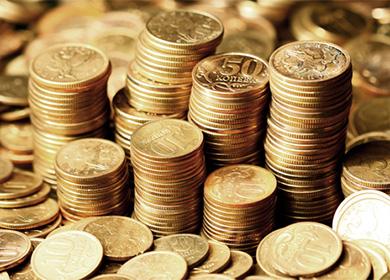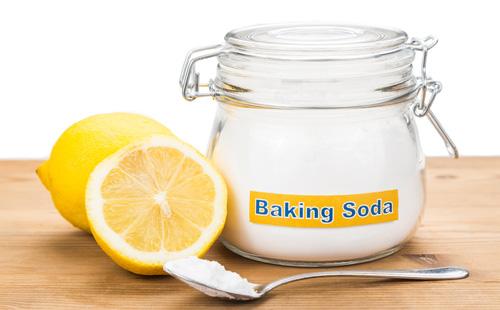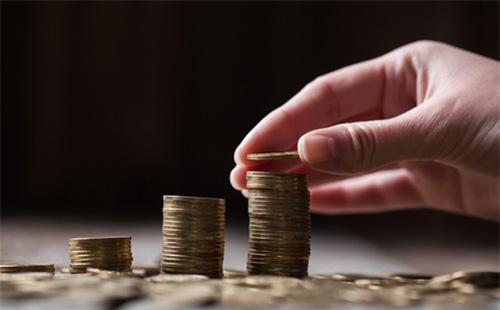The content of the article
How to store coins at home? The main thing is the lack of humidity and direct sunlight. It is important to organize the storage of the collection. There are three types of organizers.
- Albums. Each of the pages is divided into several compartments with plastic pockets. Items are stored without touching each other, they are easy and interesting to consider.
- Tablets. Made of cardboard. Slots are made on the sheet with the help of which coins are fixed.
- Pencil cases. They are two layers of glass, between which products are placed in special compartments. Devices not only allow you to consider products from all sides, but also reliably protect from dust and moisture.
Coins from different metals: care features
How to clean coins to shine? It depends on the metal. Each material is characterized by some features that determine care.
Table - Features of the care of coins from different metals
| Metal | Features | How to clean | Taboo |
|---|---|---|---|
| Gold | - Does not need frequent or aggressive cleaning; - easy to scratch even with an ordinary rag | Laundry soap | - Intense friction; - use of abrasives |
| Silver | - oxidizes | - ammonia; - hydrogen peroxide; - soda; - Toothpaste; - "Trilon B" (for low sample) | - Intensive friction |
| Copper | - Prone to patina formation | - Vinegar; - lemon acid; - "Trilon B" | - Removal of a thin layer of patina in the absence of corrosion and other damage |
| Bronze | - The formation of pink, dark brown or black plaque | - Vinegar; - lemon acid; - "Trilon B" | - Removing patina (reduces value); - treatment with nitric and sulfuric acids |
Universal Household Products
In finding a way to quickly clean old coins, you need to take care not to damage the metal. If you are new to numismatics, use one of four universal remedies.
Vinegar and Toothpaste for Rust
- To clean the coins from rust and oxidation, mix toothpaste and vinegar in equal amounts.
- In a circular motion, rub the mixture over the surface.
- Remove the remaining product with cold water and wipe the product dry.
Soda for cleaning royal coins
- Before cleaning royal copper coins, take a scraper and carefully remove traces of earth, clay and other contaminants from the surface.
- Dissolve a tablespoon of soda in a glass of water.
- Boil the solution and put metal money in it.
- Continue to heat the fluid for another half hour.
- Wash and wipe the items.
- If the result is not satisfactory, repeat the procedure again.
Ammonia for silver and bronze
- Prepare a solution of one part of ammonia and nine parts of water.
- To clean silver coins from green deposits, dip them in liquid.
- After an hour, remove the product and wipe it well with a dry cloth.
- If we are talking about how to clean bronze coins, then they should not be rubbed. Just wrap in a soft cloth.
Carbonated drinks for cupronickel
- Cleaning cupronickel coins begins with the fact that they need to be laid out at the bottom of the glass container.
- Pour them with Coca-Cola or another carbonated drink.
- Metal money must be kept in liquid for seven days.
- To clean evenly, turn the items over daily.
Cleaning Soviet coins: 2 ways
Cleaning coins of the USSR at home does not cause much trouble. Such specimens were in use relatively recently, and therefore complex pollution and darkening on them are rare. Cleaning Soviet money with aggressive detergents is strictly prohibited. More suitable folk remedies.
Soda, ammonia and toothpaste
- To clean Soviet white coins, mix baking soda, toothpaste and ammonia in equal amounts.
- Apply the mixture on a cloth and rub the metal thoroughly.
- Remove the remnants of the product with a brush.
- Rinse the coins and wipe dry.
Citric acid
- Dissolve half a teaspoon of citric acid in a glass of boiling water.
- Hold the coin with tweezers and lower it into the solution for 15-20 seconds.
- Rinse the product in water and wipe dry.
Cleaning copper coins: 3 ways
How to clean a copper coin at home? A problematic issue, since copper is considered a “capricious” metal. Based on the experience of numismatists, three sparing and effective means can be distinguished.
Laundry soap
- Pour a glass of boiling water into a plastic container and add a tablespoon of grated laundry soap.
- When the chips are completely dissolved, dip the metallic money into the liquid.
- Close the container tightly with a lid or tighten with foil and leave for three days.
- After the specified time, remove the coins and remove a layer of dirt with a brush.
- Rinse off the soap with cold water and wipe it dry.
- If it was not possible to completely clean the products, repeat the procedure a few more times.
Oil
- Pour vaseline or olive oil and put on fire.
- As soon as the oil boils, put coins in it.
- Continue digesting until contaminants are left behind from the metal.
- When the oil has cooled, remove the product and wipe with medical alcohol.
Vinegar
- Before applying the copper coin cleaner, wash the product well in soapy water.
- Rub the places that have been corroded with a cotton swab dipped in 9% vinegar in the table.
- Rinse the product in cold water and dry.
How to clean coins using electrolysis
Electrolysis is one of the fastest and most effective ways to clean metal from dirt and darkening. At the same time, the technique is dangerous, since it involves the use of electricity. Yes, and the risk of spoiling the coin increases. If you are confident in your abilities, clearly follow the instructions.
- From the power supply with a voltage of 12 volts, cut the plug.
- Separate the double wire and expose its ends.
- Solder the copper wires to the metal clamps.
- Pour half a liter of water into a plastic container and dilute a tablespoon of soda (salt can also be used).
- Plug the power supply into a power outlet, and place the clamps in a container so that they do not touch each other.
- Connect the clip from which the hiss comes, connect to the coin, and attach the second to any metal object. It can be a key or a spoon.
- It may take from 40 minutes to four hours to give shine to old coins. It all depends on the degree of contamination of the product.
- Unplug the appliance and carefully remove the clamps from the water.
- Brush a metal product with a liquid soap brush.
4 more taboos
In search of a way to polish coins, give them shine and shine, it is important not to overdo it. Careless handling of tools or cleaning products can result in damage to precious items. To avoid this, you need to remember four taboos.
- Use strong abrasives. If the coin is valuable, do not use detergent, soda, or other gross substances for cleaning. This can lead to scratches and damage to the pattern.
- Digestion of damaged products. If there are cracks or traces of corrosion, do not expose the product to high temperatures.
- Use by beginners of dangerous methods. If you are a layman in numismatics, do not clean the coins with electrolysis or harsh chemicals.
- Long-term exposure to cleaning products. If the coin is exposed to substances for longer than prescribed by the instruction, this can lead to a violation of the structure of the product.
If you are just starting your numismatist journey, remember that cleaning your coins at home cannot return them to their perfect original appearance. Therefore, if valuable specimens are on hand, it is important to protect them from darkening and pollution. Before hiding the product in the organizer, thoroughly wipe with alcohol and lubricate with petroleum jelly.



